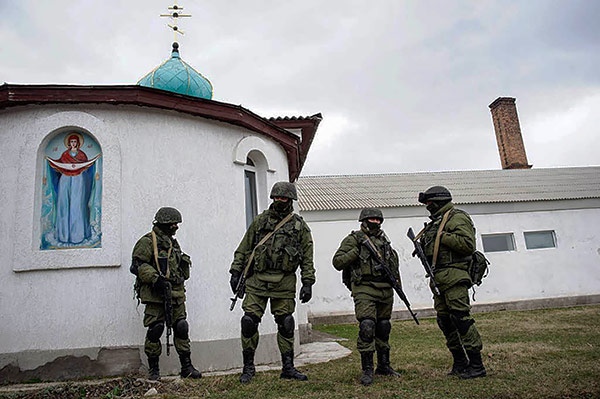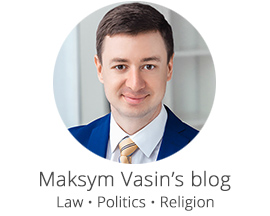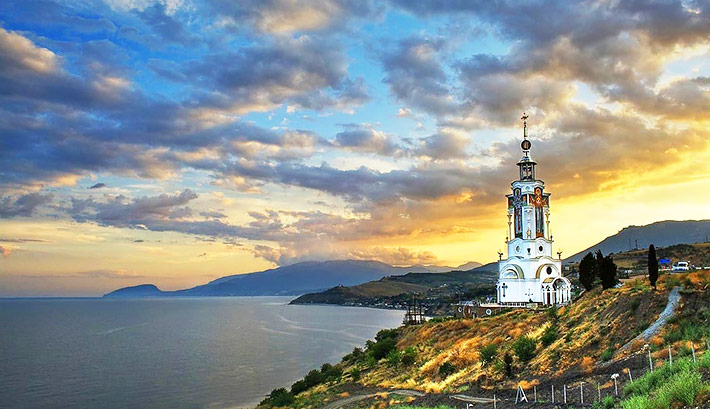Besides the difficulties with citizenship and relationships with mainland Ukraine, many problems in Crimea may arise in delicate areas such as faith.
According to official statistics, in the beginning of 2014 in Crimea (Ukraine), there were 2083 religious organizations, among which 674 have the right to engage in religious activities without registering as a legal entity. Another 137 registered religious organizations are in Sevastopol city.
However, the right of religious freedom in Crimea is under threat after Russian occupation.
This is not solely due to the lawlessness of the self-proclaimed government, which distinguished itself by kidnapping the priest chaplain Fr. Mykola Kvych in Sevastopol, followed by a search of his property and an eight-hour interrogation; an inventory of one of the Orthodox temples of the Kyiv Patriarchate; and threats directed against other Ukrainian priests and their families.
It is known that three Greek Catholic and two Orthodox priests of the Kyiv Patriarchate have already left Crimea. All clergy of the Ukrainian Greek Catholic Church and Kyiv Patriarchate were forced to take their families out of the Crimean peninsula. Due to all kinds of difficulties and threats, some pastors of Evangelical Churches and some Roman Catholic clergy have already left the peninsula. Immediately after the Russian occupation, anti-Semitism increased in Simferopol, manifesting as threats against Jews inscribed by vandals on the walls of a synagogue.
In addition to this, Russian legislation will be a problem for the Crimean people.
Compare the basic positions of the laws concerning religious freedom and religious associations in Ukraine and Russia.
|
Rights concerning religious freedom |
|
|
Ukraine |
Russia |
| All religions, faiths and religious organizations are equal (Article 5 of the Law) | Special role belongs to Orthodoxy. Christianity, Islam, Buddhism, and Judaism are recognized religions (preamble of the Law) |
| Notifying the government of the establishment of a religious community is not obligatory (Article 8) | Religious groups may act without registering. But citizens who form a religious group with the intent to further develop it into a religious organization as a legal entity must notify the local authorities at the very beginning (Article 7) |
| A religious community can be registered by a minimum of ten citizens who have reached the age of 18 (Article 14) | A local religious organization may be founded by a minimum of ten Russian citizens who have reached the age of 18, who reside in the same locality, who are united in a religious group, with confirmation issued by local authorities of its existence in the territory for at least 15 years, or confirmation of joining the structure of a centralized religious organization of the same faith, issued by that organization. |
| Fee for registering a religious organization as a legal entity is not required. | A fee is required for the official registration of religious organization or changes in its charter (Article 11): for the creation of a legal entity, 4000 rubles (~USD 100); for state registration of changes in the charter or liquidation of the legal entity, 800 rubles (~USD 20). |
| Ukrainian legislation does not use the concept of extremism. Instead, liability is incurred for a specific infringement by a specific person. | Extremist activities are grounds for the liquidation of a religious organization and legal prohibition of the activities of religious group or organization (Article 14, paragraph 2) |
These few examples demonstrate the desire of the Russian authorities to keep the religious sphere under strict control. This is especially apparent in the Federal Law of Russia ‘On Countering Extremist Activities’ and related laws, according to which religious organizations, their literature, and even internet resources may be prohibited.
The requirement concerning 15 years of service for religious organization is discriminatory against the current Crimean communities, because those which were registered after 1998 cannot be independent religious communities any longer. From the standpoint of Russian law, they will have to either cease to exist as legal entity or become a part of one of the existing centralized Russian religious associations.
By the way, it was recently reported that the Russian Union of Evangelical Christian Baptists was instructed to absorb all the communities of Christian Baptists in Crimea. Other denominations probably received the same orders.
The situation is vividly illustrated by the Crimean Tatars allowing Christians to use their mosques for prayers and services if they sense a threat to their temples or if the temples are taken away from them in the next wave of ‘nationalization.’ Moreover, not the Mejlis, but the press secretary of the Kyiv Patriarchate announced this proposal as a possible means of ensuring the rights of believers in Crimea.

On top of everything else, last year President Putin inserted rather contradictory changes to the Criminal Code of Russia and to the Code of Administrative Violations, aimed at countering insult to the religious beliefs and feelings of the citizens. Taking into account the preamble of the Russian law on religious freedom, it is not hard to understand whose feelings will be defended first.
Still, we want to believe that religious freedom and peaceful interfaith relations in Crimea will be preserved in spite of migration, financial, and other difficulties. In my opinion, intensive international monitoring by the UN, the OSCE and the Council of Europe of fundamental human rights on the Crimean peninsula can contribute to it.
Maksym Vasin, lawyer
Translated by Karolina Omelchenko, edited by Robin Rohrback

